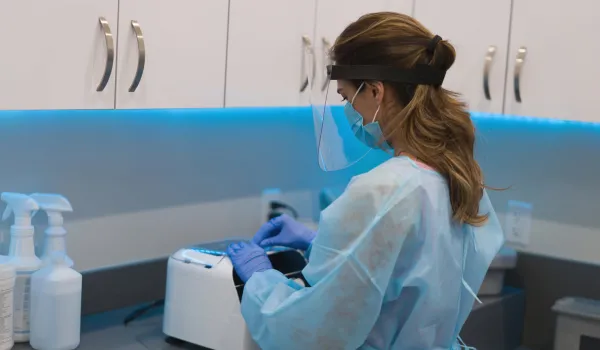Concorde Staff

Have you ever read through an entry-level job description, whether in a health care career or other professional fields, that required applicants to have 1-3 years of work experience?
It's frustrating to be told you don't have enough experience for an entry-level position when you feel like no one will give you a chance to get your foot in the door.
At Concorde, you've made a great first step by choosing an in-demand health care career. More than that are the transferable skills that you're learning in the classroom and through your respective program.
Think about it like this: You might not have real-world examples to draw from, but consider the situations and challenges that have come up as you've pursued your diploma or two-year degree.
Transferable skills for a health care career
What are transferable skills? Transferable skills are areas of development that will transfer from one environment to another such as home, school, work, volunteerism or extra-curricular activities.
Since, typically, you do this without much thought, it can make it more challenging to identify those skills off the cuff and provide practical examples of how you've developed those skills.
We'll help you get started:
Prioritization - Think about all the ways you have to stand at the intersection of work, school, family, and life and create a traffic flow that works. Did you ever reach a point where "traffic" jammed?
What did you do to restore order? You've had to find a system that works for you and commit to schedules to keep everything functioning sanely.
Communication - This can often be a skill where people think they are proficient but have no demonstrative way to show it. As team-based projects and sub-groups become more prevalent in the health care career workplace, communication and other soft skills become even more desirable.
Commitment to learning - Whether you're interested in a dental career or in a health care support role, just when you thought you were done learning, you'll quickly realize that today's workforce is constantly evolving.
From new technology on the job to implementing new processes in the organization, use your recent experiences in class to talk about how you mastered retaining massive amounts of information in a relatively short amount of time.
Adaptation - Similarly to continually learning, employers want to hire team members they're confident can react in a variety of situations - especially when it comes to dealing with patients in a health care career.
Whether in your class, during labs or at your externship site, something probably didn't go as planned. What was your reaction? Did you let it derail you or did you rise to the challenge? Discussions like these help future employers get an idea of what they can expect from you down the road.
Interpersonal relationship building
In an article for the National Association of College Employers (NACE), John Krautzel, vice president of marketing and member experience at Beyond, references a study conducted by his organization finding that 56 percent of human resources professionals value interpersonal skills over technical expertise.
"With that in mind, more organizations view 'soft skills' as a high priority when vetting potential employees," says Krautzel. He advises college students to take advantage of the resources available and participate in student organizations and professional development committees. "Not only will you learn valuable insight into your future career, but you'll be able to point to hard examples of your ability to lead a team and work well with others," he explains.

Take The Next Step Towards a Brighter Future
We have a Concorde representative ready to talk about what matters most to you. Get answers about start dates, curriculum, financial aid, scholarships and more!



